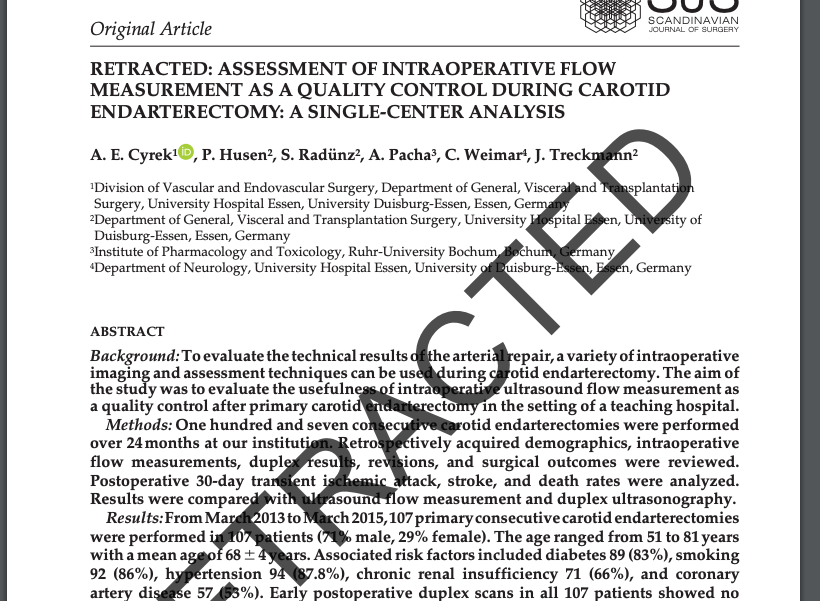
Can you retract something that never existed in the first place? At least one journal thinks the answer to that conundrum is yes.
That journal would be Medicine. In September 2020, the Wolters Kluwer journal published a paper titled “Tranexamic acid reduces blood cost in long-segment spinal fusion surgery: A randomized controlled study protocol” by a group in China led by Linyu Yang, of the Department of Orthopedics at the Affiliated Hospital of Southwest Medical University, in Sichuan.
The article promised – but failed to deliver – a “Table 1”, an omission the peer reviewers and journal staff missed during the production process. Five months later, said table still had not materialized, prompting the following notice:
Continue reading Journal retracts a paper it published with a missing table after author fails to provide it




 Earlier this year, the president of the Karolinska Institute,
Earlier this year, the president of the Karolinska Institute, 
